When Is the Right Time to Go for IVF?
For many women, the dream of becoming a mother doesn’t always follow the expected path. When natural conception becomes challenging, In Vitro Fertilization (IVF) offers a powerful and proven solution. But how do you know when it’s time to consider IVF?
This guide is designed to help women understand the signs, timing, and emotional readiness for IVF.
What Is IVF and How Does It Work?
IVF is a medical procedure where a woman’s egg is combined with a man’s sperm outside the body, in a laboratory. The fertilized embryo is then transferred into the woman’s uterus with the hope of achieving a successful pregnancy.
It’s often the most effective treatment for women facing complex or long-term fertility issues.
When to Consider IVF: 6 Clear Indicators
1. You’re Under 35 and Have Been Trying for 1 Year Without Success
If you’re under 35 and have been having unprotected intercourse for over 12 months with no pregnancy, it’s time to see a fertility specialist. You may be advised to consider IVF if less invasive options haven’t worked.
2. You’re Over 35 and Have Been Trying for 6 Months
For women aged 35 or older, egg quantity and quality begin to decline. If conception hasn’t occurred after 6 months, doctors often suggest starting fertility assessments early — and IVF may be the best chance to conceive quickly.
3. You Have Diagnosed Fertility Conditions
Conditions such as:
- Blocked fallopian tubes
- Endometriosis
- Polycystic Ovary Syndrome (PCOS)
- Low ovarian reserve may make natural conception difficult or impossible.
In such cases, IVF is usually a recommended first-line treatment, especially if medications or IUI have failed.
4. Male Factor Infertility
When the male partner has a low sperm count, poor motility, or abnormal morphology, IVF combined with ICSI (Intracytoplasmic Sperm Injection) can significantly improve success rates.
5. Repeated Miscarriages or Failed IUI Treatments
If you’ve had multiple failed Intrauterine Insemination (IUI) cycles or recurrent miscarriages, IVF may help by allowing genetic screening of embryos before implantation — increasing the chances of a healthy pregnancy.
6. You Want to Preserve Fertility for Later
Many women in Saudi Arabia today are prioritizing careers or education. If you’re not ready for pregnancy now, egg freezing followed by IVF later allows you to preserve fertility potential, especially before the age of 35.
Is IVF the First Step? Not Always.
Fertility specialists typically begin with:
- Blood tests to assess hormone levels (AMH, FSH, TSH)
- Ultrasounds to evaluate ovarian reserve and uterus condition
- Lifestyle assessments for weight, stress, and general health
- Less invasive treatments like ovulation induction or IUI
IVF is considered when:
- Other options fail
- Time is limited due to age
- The underlying cause requires assisted reproduction
Conclusion
Every woman’s fertility journey is unique. If you’re unsure about IVF, the best first step is a detailed consultation with a fertility expert. With the right guidance, support, and medical approach, IVF can offer renewed hope.
Please note: This article is for informational purposes only and does not replace professional medical advice. Please consult with a fertility specialist for personalized diagnosis and treatment.



